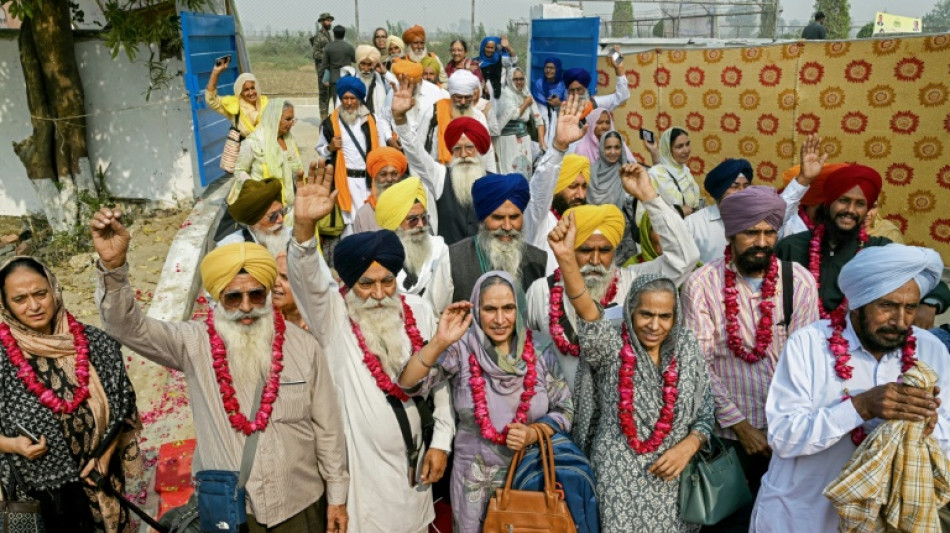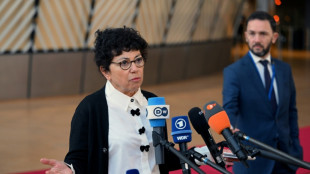

Indian Sikh pilgrims enter Pakistan, first major crossing since May conflict
Pakistan on Tuesday welcomed jubilant Sikh pilgrims from India, in the first major crossing since deadly clashes in May closed the land border between the nuclear-armed neighbours.
More than 2,100 pilgrims were granted visas to attend a 10-day festival marking 556 years since the birth of Guru Nanak, founder of the Sikh faith, Pakistan's High Commission in New Delhi said last week.
Islamabad and New Delhi engaged in the worst fighting since 1999 in May, with more than 70 people killed.
The Wagah-Attari border -- the only active land crossing between the two countries -- was closed to general traffic following the violence.
AFP journalists saw hundreds of pilgrims streaming their way through the border with their luggage in tow.
They were received by Pakistani officials, who presented them with flowers and showered them with rose petals. Many wore garlands and chanted joyfully after crossing.
"We have nothing to do with the war," pilgrim Parvinder Kaur told AFP.
"We often watched videos of the shrines and dreamed of coming here, and now, we are finally here for the first time."
Another said the welcome was overwhelming. "It doesn't feel like we are in another country. It feels like we are among our own people," said Valeti Singh.
"We pray to God that when Pakistanis visit our side, we can reciprocate the same warmth and respect."
- 'Pleasant memories' -
Nasir Mushtaq, a senior official at Pakistan's religious affairs ministry, told AFP around 2,000 pilgrims crossed into Pakistan on Tuesday, the eve of Guru Nanak's birthday.
There was no immediate confirmation from Indian authorities.
"We are welcoming all the Sikh pilgrims arriving from India with greater respect, honour and hospitality than ever before," Mushtaq said.
"We want to leave a lasting impression of love, peace and respect with our Sikh guests so they return to India and elsewhere with pleasant memories of Pakistan."
The pilgrims will gather on Wednesday at Nankana Sahib, Guru Nanak's birthplace west of Lahore, and later visit other sacred sites in Pakistan, including Kartarpur, where the guru is buried.
Pakistan's High Commission had said last week its decision was consistent with efforts to promote "inter-religious and inter-cultural harmony and understanding".
The Kartarpur Corridor, a visa-free route that opened in 2019 allowing Indian Sikhs to visit the temple without crossing the main border, remains closed since the conflict.
Four days of clashes broke out in May after New Delhi accused Islamabad of backing a deadly attack on tourists in Indian-administered Kashmir, claims Pakistan denied.
Sikhism is a monotheistic religion born in the 15th century in Punjab, a region spanning parts of what is now India and Pakistan.
The frontier between the two countries was a colonial creation drawn at the violent end of British rule in 1947, which sliced the subcontinent into Hindu-majority India and Muslim-majority Pakistan.
While most Sikhs migrated to India during partition, some of their most revered places of worship ended up in Pakistan, including the shrines in Nankana Sahib and Kartarpur.
S.Gruber--NWT


